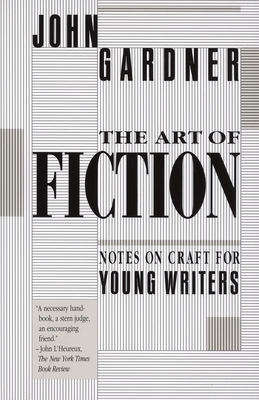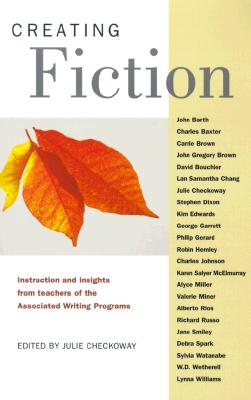I attended my first such conference in 2006 in Nashua, NH. Since then the conference has outgrown one venue after another. I remember that first conference vividly. I had signed up for a critique for the first ten pages of the very first novel I ever wrote, which I called The Wassergeist. It means "the water ghost" or "water spirit," or so my German friend assured me. He may have been pulling my leg. The editor who critiqued the manuscript didn't whip out her checkbook on the spot, but she had encouraging things to say (as well as critical things), and said she'd be interested in seeing it again. I left flying high.
 At that same conference, I listened to a joint presentation by an author, Kimberly Newton Fusco, and her editor from Knopf. They described the process of working together on Kimberly's debut, Tending to Grace. If I remember correctly, they had met at a NESCBWI conference via a manuscript critique. I was completely starstruck in such proximity to an actual author and her actual editor. I promised myself that someday I'd be where they were.
At that same conference, I listened to a joint presentation by an author, Kimberly Newton Fusco, and her editor from Knopf. They described the process of working together on Kimberly's debut, Tending to Grace. If I remember correctly, they had met at a NESCBWI conference via a manuscript critique. I was completely starstruck in such proximity to an actual author and her actual editor. I promised myself that someday I'd be where they were.But attending these large conferences as a first-timer is daunting, and I imagine it's all the more so today. The sheer size of the group was overwhelming. If so many hundreds of writers were committed enough to shell the money and attend such a conference, how could I hope to make an impression in the industry? They were shiny, their hair was neat, they smelled pretty. Surely their lives and their prose were correspondingly superior. Were they my competitors? I didn't know a soul, but they all seemed to know each other, and to know so much more than I did.
Linda Sue Park was the keynote speaker that year. She said many wise and wonderful things, but the one that has stuck with me to this day was, "Just try it." When readers and critiquers suggest a revision strategy, don't resist it, just try it. You never know. If you don't like it, flush it, but try it. It takes no more energy to try it than it does to resist it.
I did one smart thing that first year, which was putting my name on the list of volunteers to help out the following year. It seemed like a good way to get to know people and learn more about the organization. For the next several years I was an active member of the conference planning committee.

 At the next year's conference I returned with a few things. 1. A submission to the First Pages Panel. 2. A new novel in the works. 3. A warm rejection letter in hand from the editor I'd heard speak the year before. 4. A volunteer's badge, and now, many familiar faces. This time, my critique was unremarkable. The editor wrinkled her nose and said she didn't "do" fantasy. But an agent on the First Pages Panel said very nice things about my first page, so I ambushed her in the hallway. That was my agent, Alyssa Eisner Henkin of Trident Media Group, and that first page was the start of All the Truth That's in Me. The novel I critiqued was the opening to The Amaranth Enchantment.
At the next year's conference I returned with a few things. 1. A submission to the First Pages Panel. 2. A new novel in the works. 3. A warm rejection letter in hand from the editor I'd heard speak the year before. 4. A volunteer's badge, and now, many familiar faces. This time, my critique was unremarkable. The editor wrinkled her nose and said she didn't "do" fantasy. But an agent on the First Pages Panel said very nice things about my first page, so I ambushed her in the hallway. That was my agent, Alyssa Eisner Henkin of Trident Media Group, and that first page was the start of All the Truth That's in Me. The novel I critiqued was the opening to The Amaranth Enchantment. This weekend, when I arrived at the Springfield Sheraton, there was none of that first-time bewilderment or loneliness. An onlooker might have suspected a family reunion, albeit a huge one, for a family that wears name badges and euthanizes most of its males. Hang around this writerly community long enough, and true friendships form. Over the years, many NESCBWI members have gone from cheery acquaintances, to writerly colleagues, to critiquing and writing retreat partners, to close friends, whose lives and homes and families I know, and they know mine. Others testified this would happen at that 2006 conference, but I didn't fully believe it.
The workshop Kendra and I presented Saturday was titled, "Write What You Don't Know: A Workshop on Fleeing Your Comfort Zone." We had 140 people in the room, and it was marvelous. You might say it was another slant on Linda Sue's "Just try it" advice. Once again I was amazed by the size of the group, the energy, the willingness to learn, and the commitment level. With each writing prompt and exercise we assigned, the group fell into a reverent hush. The only sounds were scratching pens and typing fingers. The creative energy in the room so thick you could smell it. I felt embarrassingly, goopily, maternally proud of everyone there, and wanted to echo Jo Knowles's sentiments from her lunchtime remarks, accepting the Crystal Kite Award: "Don't give up. I believe in you."
Though I stand in a different place now, I'm still in awe of SCBWI, and specifically the New England chapter, for how it fosters creative drive, industry professionalism, and a profound sense of belonging to something both personally fulfilling, and much larger than any one of us alone: the crazy tribe of devoted souls supplying our generation's children with stories.
Colossal kudos and thanks to this year's organizers, and to those brave enough to pick up the torch for future years. I wouldn't be where I am today without SCBWI, and I expect to remain part of it for life.
*** Postscript:
I promised I would post the three titles we used as resources in our slides. They are:
Fiction Writer's Workshop, by Josip Novakovich, 2008, Writers' Digest Books, Cincinnati.
Creating Fiction, edited by Julie Checkoway, 1999, Story Press, Cincinnati
 The Art of Fiction, by John Gardner, 1983, Vintage Books, New York
The Art of Fiction, by John Gardner, 1983, Vintage Books, New York


Love your reflection. NESCBWI conferences have been been invaluable to me for a # of years. I'm sorry I didn't get to go this year, but your post makes me feel more connected to it.
ReplyDelete